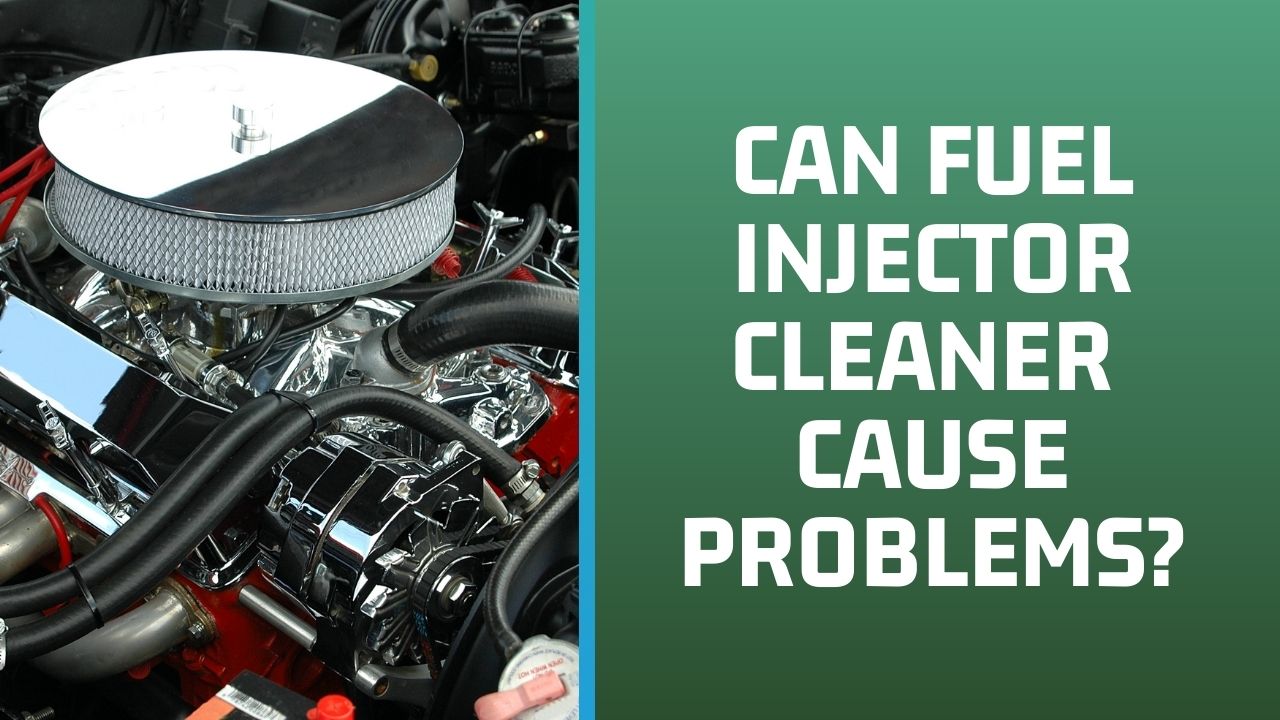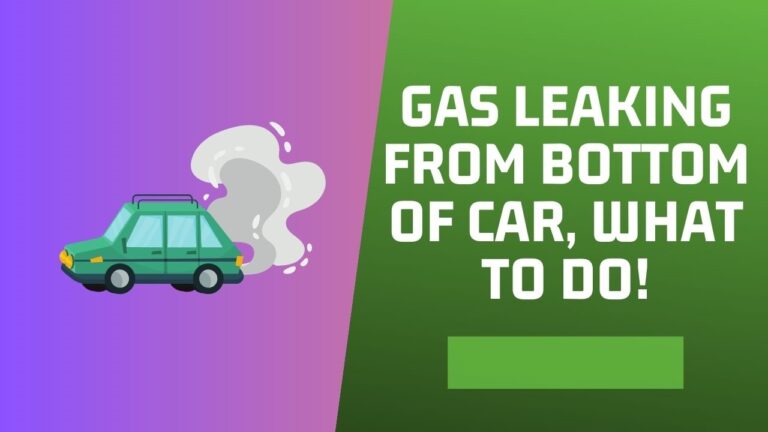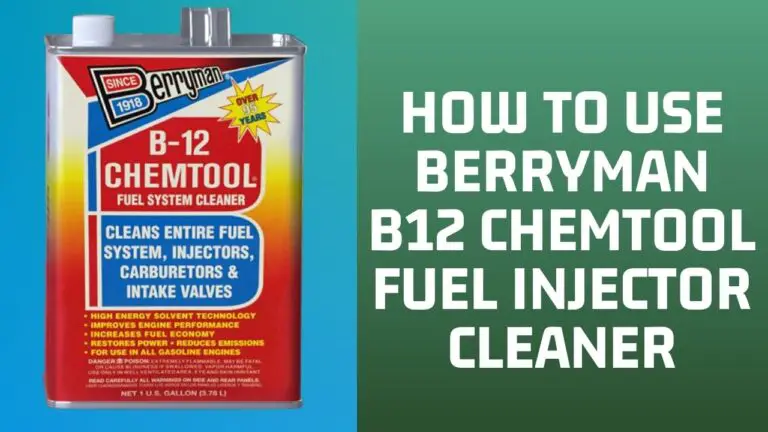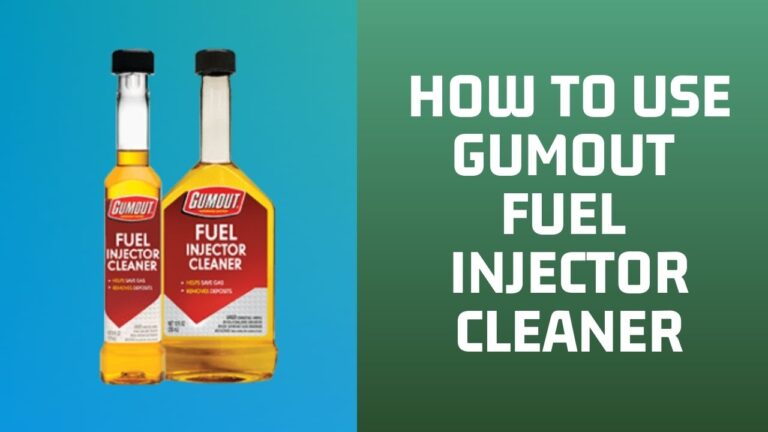Well, it depends. If used correctly, injector cleaner will cause no problems. However, damage can be caused if it removes components as part of a “routine” process. Some users have reported fuel injectors causing damage to emission components and fuel injectors.
With oxygen sensors and catalytic converters taking up most of the damage.
Wait, Can Fuel Injector Cleaner Cause Problems?
Although there is no scientific research publication that proves that they do work, it is safe to say that fuel system cleaners work and cause no issues if used correctly.
However, regular pour-in fuel injectors or cleaner solvents won’t be effective if the deposit buildup is too much.
ALSO SEE: Can Fuel Injector Cleaner Cause Misfire?

So, What are Fuel Injectors?
Injector cleaners are solvents that aid in the clean-up of the fuel pathways. These fuel system cleaners in bottles are poured into the fuel tank.
They begin working to clean the whole fuel system by dissolving the gum and other residue that has built up in the fuel lines over time.
Although fuel injectors are effective at debris prevention, small amounts of particles and gummy residue still pass through. Fuel injector cleaners are burnt off in the engine since they are combustible solvents.
Polyether amine is used for petrol and diesel applications. It works to reduce the chances of your engine misfiring and knocking off. It’s also effective in removing excess moisture from the fuel line.
This chemical helps when old gas is in the fuel tank that’s just blocking the fuel line and not burning. PEA is added to the injector cleaners to dissolve solid deposits in the fuel lines.
While fuel injector cleaners are generally designed to improve fuel system performance, there are instances where they might cause problems. Here are some potential causes, common issues that might arise, and possible fixes:
Causes of Problems Caused by Fuel Injector Cleaner:
- Incorrect Application: Using the wrong type of fuel injector cleaner or using it in a system not designed for it (e.g., using a diesel injector cleaner in a gasoline engine) can lead to issues.
- Overuse: Excessive use of fuel injector cleaner, using it more frequently than recommended, or using a higher concentration than directed can potentially lead to problems.
- Dislodging Deposits: While the purpose of fuel injector cleaner is to remove deposits, in some cases, dislodged deposits can cause clogs in the fuel system or other components.
- Reaction with Contaminants: If your fuel system has other contaminants, the fuel injector cleaner’s chemical reaction with those contaminants might lead to unwanted effects.
Common Problems Caused by Fuel Injector Cleaner and Possible Fixes:
- Rough Idling or Misfire:
- Issue: Dislodged deposits might block fuel injectors or interfere with combustion, leading to rough idling or misfires.
- Fix: Allow the cleaner to work its way through the system. If the issue persists, consult a mechanic for a diagnostic check and potential cleaning.
- Fuel Filter Clogging:
- Issue: Dislodged debris might clog the fuel filter, reducing fuel flow.
- Fix: Replace the fuel filter if it’s clogged, and ensure it’s suitable for the cleaner you’re using.
- Check Engine Light (CEL) Illumination:
- Issue: In some cases, dislodging deposits might trigger the vehicle’s onboard diagnostics system, causing the CEL to illuminate.
- Fix: If the light stays on after a few driving cycles, have the vehicle’s computer scanned for trouble codes to identify the issue.
- Exhaust Smoke:
- Issue: Introducing cleaner to the combustion process might cause temporary smoke due to the cleaner’s reaction with carbon deposits.
- Fix: If the smoke is persistent or concerning, consult a mechanic to ensure there are no underlying issues.
FAQs About Fuel Injector Cleaner Problems:
1. Can fuel injector cleaner damage my engine?
- When used according to the manufacturer’s instructions, fuel injector cleaner is not likely to cause significant engine damage. However, using excessive amounts or using it inappropriately might lead to issues.
2. Should I be concerned if I experience problems after using fuel injector cleaner?
- Some issues might arise temporarily as the cleaner works through the system. If problems persist or worsen, consult a mechanic for a proper diagnosis.
3. Can fuel injector cleaner fix serious engine problems?
- Fuel injector cleaner is designed for preventive maintenance and addressing minor fuel system issues. It is not a substitute for diagnosing and repairing major engine problems.
4. Can I mix fuel injector cleaner with gasoline in a can before adding it to the tank?
- It’s generally best to add the cleaner directly to the fuel tank as directed on the product label. Mixing it outside the tank might alter the recommended dosage.
5. How often should I use fuel injector cleaner?
- Follow the manufacturer’s recommendations on the product label. Using it too frequently can potentially cause issues.
conclusion
In summary, while fuel injector cleaners are generally safe and effective, using them improperly or excessively might cause issues. Following the manufacturer’s instructions, choosing the right product for your vehicle, and being cautious about overuse can help prevent problems. If you experience persistent issues after using a fuel injector cleaner, you should consult a mechanic for a proper diagnosis and solution.







